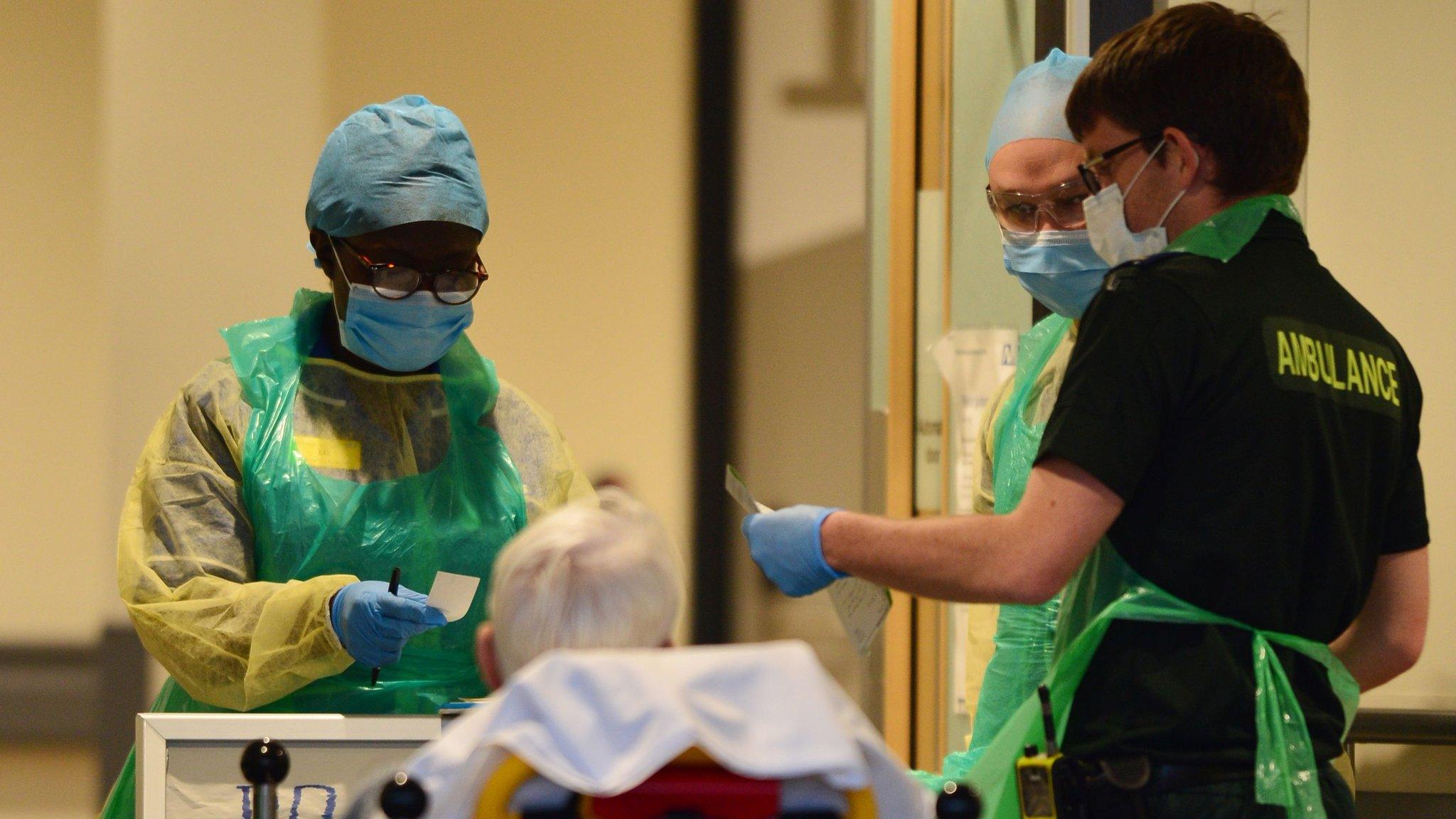Coronavirus: Masks for public 'could put NHS supplies at risk'
- Published
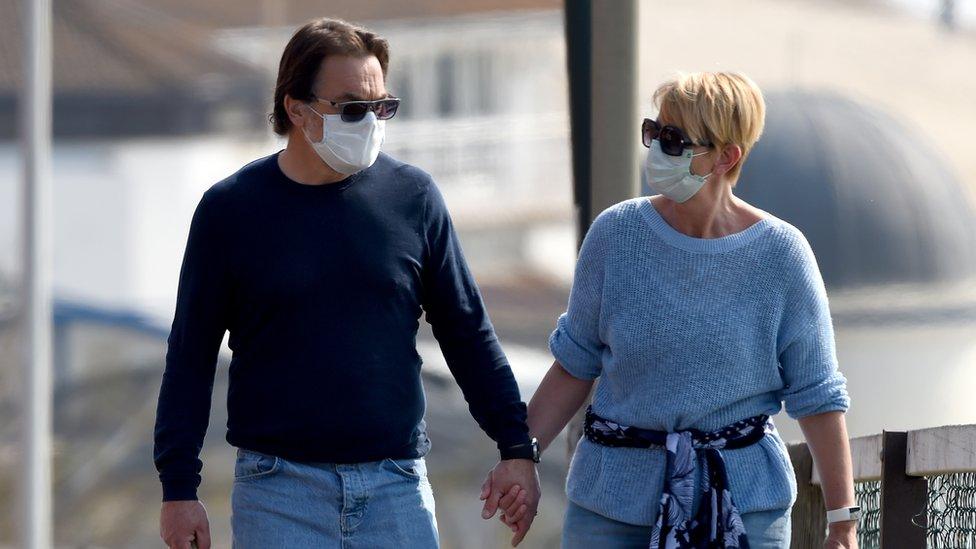
NHS supplies of face masks could be put at risk if the government starts advising the public to wear them, hospital bosses have warned.
The government's scientific advisers are meeting on Tuesday to discuss whether people should be urged to wear masks in a bid to combat coronavirus.
But Chris Hopson, chief executive of NHS Providers, warned there should be "clear evidence" to justify their use.
It comes as the UK recorded another 823 coronavirus deaths in UK hospitals.
That takes the total number to 17,337.
Official figures show record numbers of deaths in England and Wales in the week up to 10 April, driven by 6,200 fatalities attributed to coronavirus. These figures cover all settings, including care homes and deaths in the community as well as hospitals.
Meanwhile, Prime Minister Boris Johnson has spoken to Donald Trump as he continues his recovery from coronavirus.
A No 10 spokesman said Mr Johnson thanked the US president for his good wishes while he was unwell and they agreed on the importance of a co-ordinated international response to the pandemic.
The World Health Organization, external (WHO) has said there is no evidence to support the use of face masks by the general population.
It says people who are not in health and care facilities should only wear masks if they are sick or caring for those who are ill.
But the debate around their use in the UK has been gaining momentum in recent weeks, with proponents arguing they can help reduce the risk of people with the virus passing it on to others.
London Mayor Sadiq Khan has called for the wearing of masks while travelling in the city to become compulsory.
Should I wear a mask to stop coronavirus?
Elsewhere, the French authorities will provide masks to people when lockdown measures are eased next month, and Americans are being urged to wear cloth face coverings in public spaces where social distancing is impossible.
The government's Scientific Advisory Group for Emergencies (Sage) is set to make its recommendations to ministers this week.
But Mr Hopson, who represents healthcare trusts across England, said the impact on the NHS must be fully assessed.
"Fluid-repellent masks for health and care staff are key to safety and to avoid the spread of coronavirus," he said.
"Securing the supply of masks, when there is huge global demand, is crucial. This must be a key consideration for government.
"There needs to be clear evidence that wearing masks, along with other measures, will deliver significant enough benefits to take us out of lockdown to potentially jeopardise NHS mask supply."
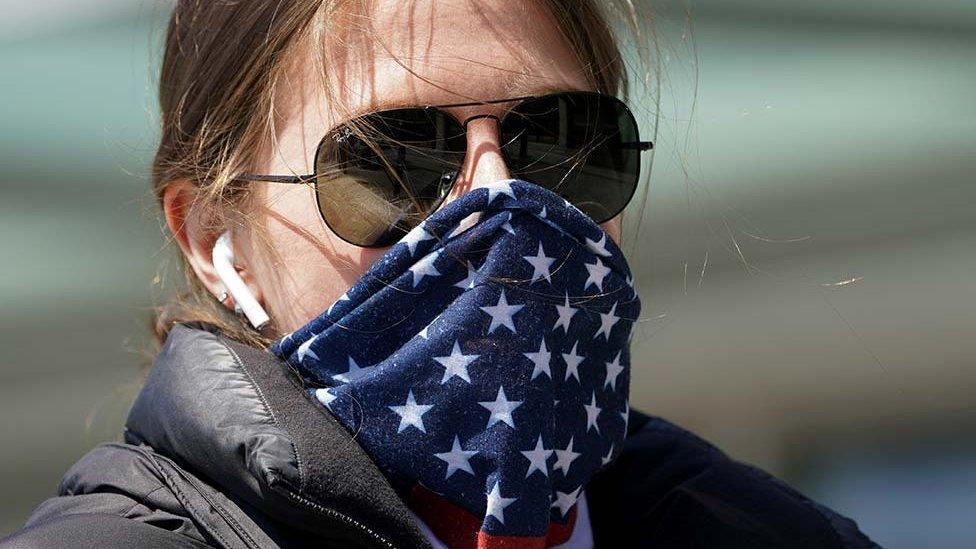
Americans have been advised to use clean cloth or fabric to cover their faces
The WHO guidance, issued earlier this month, warned that the use of masks by the public can create a "false sense of security" and lead to people ignoring other protective measures, such as hand hygiene and physical distancing.
While acknowledging the virus can be passed on by people who are not yet symptomatic, it says: "Current evidence suggests that most disease is transmitted by symptomatic, laboratory-confirmed cases.
"There is currently no evidence that wearing a mask (whether medical or other types) by healthy persons in the wider community setting, including universal community masking, can prevent them from infection with respiratory viruses."
Masks can even be a source of infection when not used correctly, the WHO added.
But a group of medics has called on people to make their own face masks to help stop the spread of coronavirus.
Masks4All, a campaign group started in the Czech Republic that has attracted the support of more than 100 UK medics, suggested homemade masks could slow the spread of Covid-19
Dr Helen Davison told the Daily Telegraph, external the group was "advocating the use of cloth masks as a precautionary principle" and that it had been inspired by action taken in other countries.
And Prof Babak Javid, consultant in infectious diseases at Cambridge University Hospitals, said "population mask wearing should be an important part of the response to Covid".
He added: "Once Covid cases are largely suppressed, we can stop wearing masks, their incremental gain will be low. But now, to really benefit from masks, the majority of us need to wear masks."

A SIMPLE GUIDE: How do I protect myself?
AVOIDING CONTACT: The rules on self-isolation and exercise
HOPE AND LOSS: Your coronavirus stories
LOOK-UP TOOL: Check cases in your area

Meanwhile, the delayed batch of protective kit destined for the NHS has arrived at Istanbul Airport and is expected to be loaded onto an RAF aircraft which flew out to Turkey on Monday.
Amid mounting criticism of the government over the ongoing shortages of protective gear for NHS staff, Chancellor Rishi Sunak told Monday's Downing Street coronavirus briefing the government was working "around the clock" to address the problem.
Also at the briefing, the UK's deputy chief scientific adviser, Prof Dame Angela Maclean, said the number of new confirmed infections was "flattening out".
In other developments:
The House of Commons has held a rehearsal of new working arrangements to allow MPs to scrutinise ministers over video link
British-Iranian charity worker Nazanin Zaghari-Ratcliffe has had her temporary leave from prison in Iran extended by another month, her MP Tulip Siddiq tweeted, external
Captain Tom Moore, the 99-year-old war veteran who raised over £27m for the NHS, has opened a new Nightingale hospital in Harrogate
The chief executive of Burger King UK has said the fast-food chain has not made its rent payments for April. It is among several chains to have asked the chancellor for a nine-month rent holiday
One of the UK's biggest motor insurance companies, Admiral, is giving a £25 refund to customers with a policy on 20 April
With 90% of flights grounded, experts are warning that some airports could close due to the impact of the pandemic
- Published20 April 2020
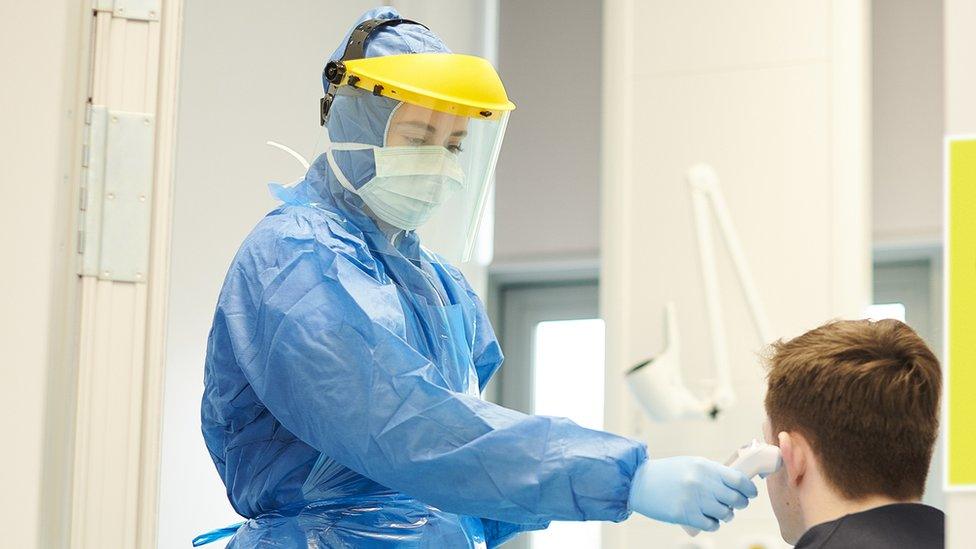
- Published16 March 2022
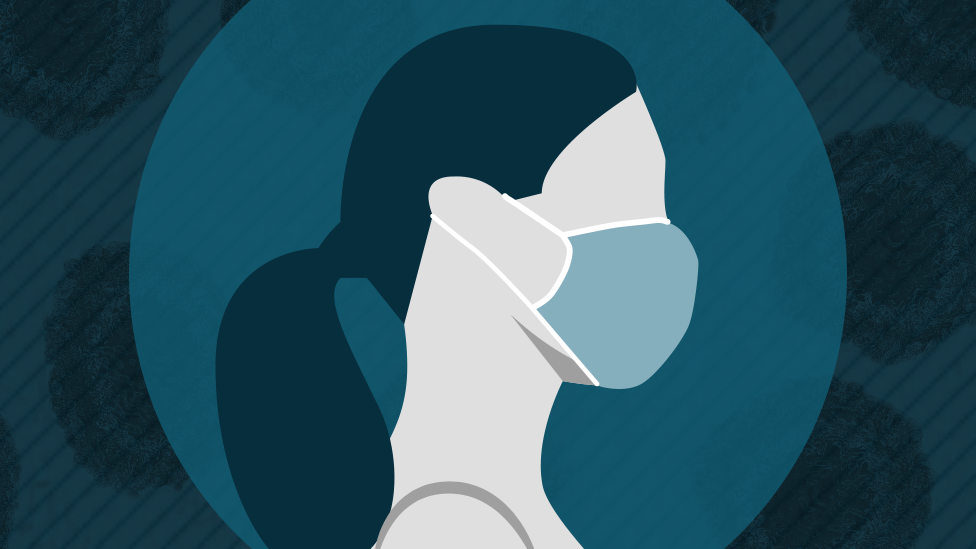
- Published19 February 2021
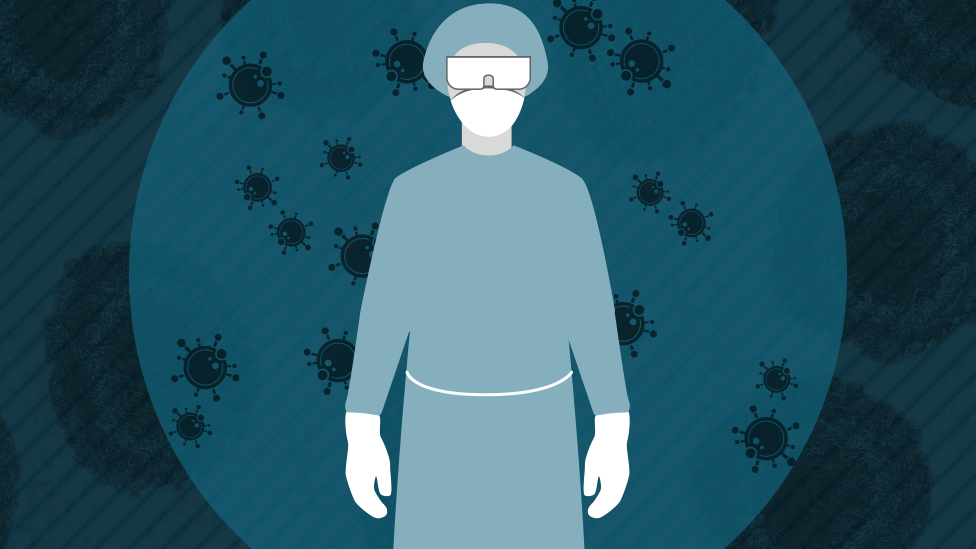
- Published19 April 2020
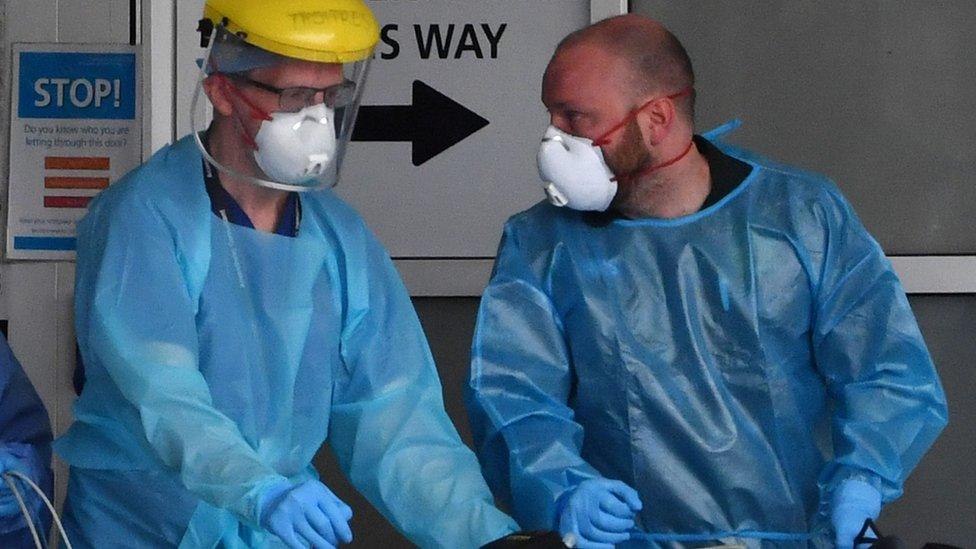
- Published18 April 2020
